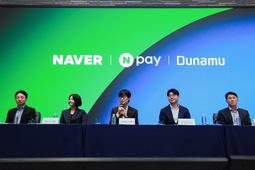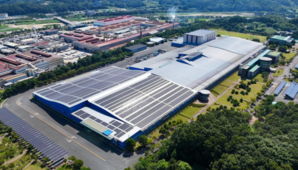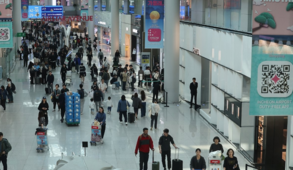
[News Space=Reporter seungwon lee] Nonghyup Hanaro Distribution (CEO Lim Young-sun, Nonghyup Distribution) has been facing a liquidity crisis due to its continuous deficits and increased debt, and its financial soundness has been put on red alert. In addition, eight legal disputes amounting to 38.6 billion won in litigation and 51.3 billion won in retirement benefit liabilities are also adding to the financial burden.
According to the audit report of the Financial Supervisory Service's electronic disclosure system on the 8th, Nonghyup Distribution's sales in 2024 will be 1.271 trillion won, a 1.6% decrease from 1.2915 trillion won the previous year.
Operating loss increased 27% to KRW 40.4 billion from KRW 31.8 billion the previous year. Net loss for the period also increased 28.4% to KRW 39.7 billion from KRW 30.9 billion the previous year.
Nonghyup Economic Holdings launched an integrated corporation in November 2021 by absorbing four distribution subsidiaries (Nonghyup Distribution, Nonghyup Chungbuk Distribution, Nonghyup Daejeon Distribution, and Nonghyup Busan Gyeongnam Distribution). However, operating profit, which had reached 11 billion won in 2020 just before the integration, shrank starting in 2021, and recorded its first operating loss in 2022. Since then, the butter operating loss has expanded every year.
As of the end of 2024, the accumulated deficit was 35.3 billion won.
Accumulated deficit refers to the total of losses that a company has accumulated from the past to the present. Therefore, it is an indicator that Nonghyup Hanaro Distribution has been recording deficits for several years. It is a result of incurring more expenses than generating profits from business activities, suggesting that there is a serious problem with management efficiency.
In addition, if accumulated deficits increase, the possibility of capital erosion increases. It makes it difficult to secure additional funds or loans, and it greatly threatens the financial stability of the company. Naturally, dividends cannot be paid when accumulated deficits exist, and the company lacks the financial capacity for new investments or business expansion, which hinders the growth potential of the company.
In particular, if you calculate the capital erosion rate, it comes out to 9.04%. This means that the company has eroded about 9% of its capital due to losses. Of course, it does not reach the 50% capital erosion rate, which is the bankruptcy standard, but it is a warning signal for financial soundness.
The debt ratio also worsened by 13.46 percentage points to 54.88% compared to 41.42% the previous year.
Short-term borrowings also surged 64.4% to KRW 96.7 billion from KRW 58.8 billion the previous year. The interest expense on the huge amount of short-term borrowings alone amounted to KRW 3.57 billion. This is equivalent to 9% of the total loss of KRW 39.7 billion.
The current ratio also stood at 31.4%, which is a dangerous level showing extremely low liquidity compared to the industry average of 200%.
In addition, the lease liabilities were reported to be a total of KRW 1.4 billion, of which KRW 750 million is scheduled to be repaid within one year and KRW 760 million within the next five years. This is likely to act as a factor that could increase the financial burden in the short term.
Nonghyup Distribution's capital erosion occurred as deficits accumulated after the integration of four distribution affiliates in 2021. After the government's restructuring of the business structure in 2012, Nonghyup separated the economic and credit sectors, and the financial sector was changed to the holding company system of Nonghyup Financial Holdings and the economic sector to Nonghyup Economic Holdings. After that, Nonghyup Economic Holdings absorbed four distribution affiliates (Nonghyup Distribution, Nonghyup Chungbuk Distribution, Nonghyup Daejeon Distribution, and Nonghyup Busan Gyeongnam Distribution) in November 2021 to launch an integrated corporation.
Looking at the legal disputes, there are currently eight lawsuits in progress. The total amount of lawsuits is a whopping 38.6 billion won.
As another incidental matter, the former CEO of Nonghyup Hanaro Distribution signed a lease contract with the construction company of the leased building in January 2017 without the approval of the board of directors of Nonghyup Hanaro Distribution for a total contract period of 20 years and an annual rent of 6 billion won. Nonghyup Hanaro Distribution has determined that the lease contract is invalid and has notified the construction company of the invalidation, termination, and cancellation of the lease contract.
In this regard, it seems necessary to prepare for and establish countermeasures for the financial burden (e.g., damages, rent adjustments, etc.) that may arise from disputes over lease contracts in order to minimize the legal, financial, and operational impacts that may arise and resolve the issues.
The retirement benefit liabilities of 51.3 billion won are also a risk factor, accounting for 20.6% of total liabilities.
The retirement benefit liability is an item that is recorded as a liability by estimating the amount that a company must pay to employees upon retirement at the current point in time. The current retirement benefit liability is calculated based on a wage increase rate of 2.4%. However, if the inflation rate is higher than the wage increase rate, the actual wage increase rate may be greater, and in this case, the size of the retirement benefit liability will also increase, and the company will have to shoulder additional financial burdens, which is a risk factor.
The dependence on related companies is also high, making independence vulnerable. Currently, the transaction ratio with Nonghyup affiliates amounts to 11.2% of sales and 74.0% of purchases.
This means that Nonghyup Hanaro Distribution relies on affiliates for more than one-tenth of its sales, indicating a lack of expansion of its external customer base. In addition, the fact that purchases made through Nonghyup affiliates account for 74.0% shows that Nonghyup Hanaro Distribution relies heavily on Nonghyup affiliates for procurement of products and services.
A corporate finance analysis expert pointed out that, “A high proportion of internal transactions means that Nonghyup Hanaro Distribution may have limited ability to respond to external market changes,” and, “If it lacks external supply chain diversification and competitiveness, Nonghyup Hanaro Distribution’s business operations are likely to be affected by changes in the management situation or policies of its affiliates.”
Looking at the fair value of Nonghyup Hanaro Distribution's investment real estate, the fair value of the land is 88.1 billion won, 33 billion won higher than the book value (55.1 billion won), and the fair value of the building is 49.3 billion won, 8.5 billion won higher than the book value (40.8 billion won). Adding these together, there is a potential valuation gain of 41.5 billion won. Fair value refers to the price at which assets or liabilities can be traded in the current market.
The cost of sales ratio was 81.2%, showing a slight improvement compared to 81.3% the previous year, indicating the need for improved efficiency in sales.
The executives' compensation totaled 626 million won, a 5.4% decrease from the previous year's 662 million won. Nonghyup Economic Holdings, the shareholder, owns 100% of the shares.
In addition, sales and management expenses amounted to KRW 279.9 billion, of which KRW 98 billion was for salaries, KRW 36.9 billion for welfare expenses, KRW 3.5 billion for advertising and publicity expenses, and KRW 29.3 billion for commissions.
Meanwhile, Nonghyup Distribution was embroiled in political controversy due to an event held by former President Yoon Seok-yeol on March 18, 2024, ahead of the April 10 general election, in which he sold a bunch of green onions for 875 won at Hanaro Mart Yangjae Branch. At the time, former President Yoon evaluated the price of green onions as "reasonable," and was criticized for "a show of price checks for show."
From this time on, Nonghyup Distribution has been selling green onions for 875 won, which is about 70% cheaper than the average retail price of green onions, in a desperate manner for over a month until after the general election, and there are even analyses that say that its profitability has also been in danger.
























































